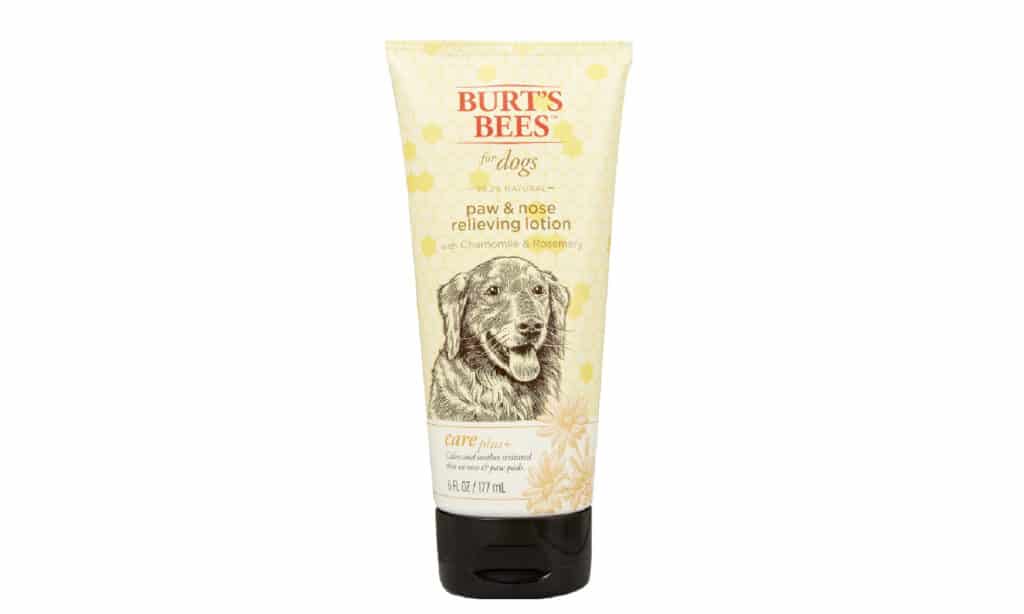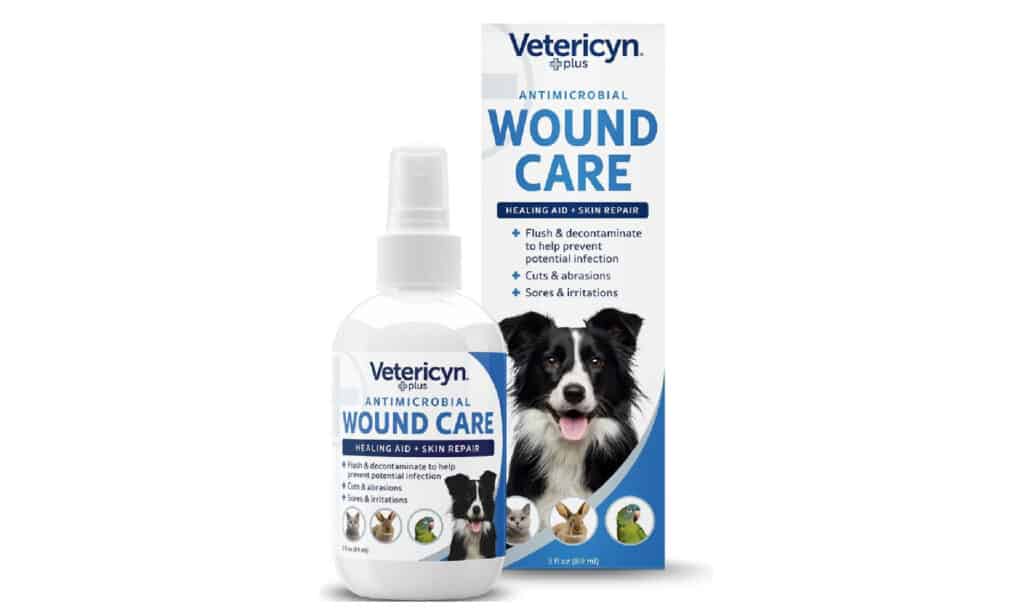As pet owners, we all want to ensure that our furry companions are healthy and comfortable. However, our pets can experience a variety of health issues, including skin irritations and sore spots. One common problem that dogs face is a sore bum, which can be uncomfortable and painful for them. If you’ve noticed that your dog has a sore bum, you may be wondering what cream you can use to soothe the area and promote healing. With so many different creams and ointments available, it can be challenging to know which one is best for your pet. In this blog, we’ll explore expert answers to the question, “What cream can I put on my dog’s sore bum?” to help you make an informed decision and get your furry friend back to feeling their best.
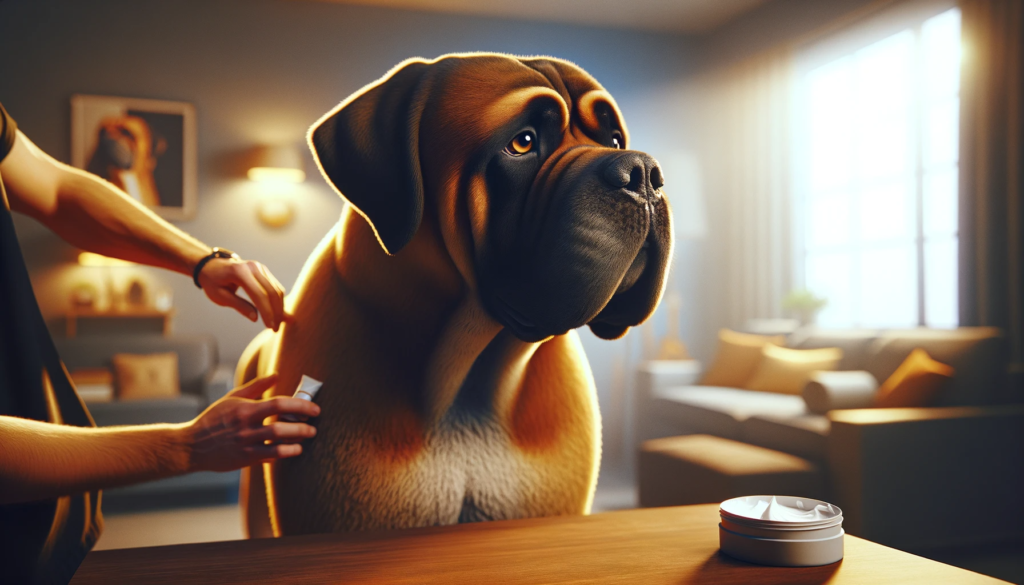
Understanding Why Dogs Get Sore Bums
Dogs may experience soreness in their hindquarters, which can be caused by a variety of factors. One of the most common reasons is due to diarrhea and prolonged exposure to moisture. Additionally, if dogs do not receive regular grooming, matting can occur in their fur which can lead to irritation and soreness. Understanding the causes of sore bums in dogs is essential in ensuring their overall health and comfort.
It is crucial to take measures to prevent sore bums by keeping your pet clean and dry. Grooming your dog on a regular basis also helps to prevent mats from forming in the fur which can lead to discomfort. Additionally, it’s important to feed your dog a healthy diet that is rich in fiber and nutrients that support digestive health.
If your dog does develop a sore bum, there are ways you can soothe the area and promote healing. Applying topical ointments or creams can help alleviate the pain and reduce inflammation. You can also give your pet sitz baths or use warm compresses to provide relief.
Taking care of your furry friend’s hygiene goes beyond just giving them baths; it includes ensuring they have good digestive health as well as proper grooming habits. By understanding the reasons why dogs get sore bums and taking preventative measures when possible, you can help keep your pup comfortable, happy, and healthy.

Common Causes of a Sore Dog Bum
If you’ve noticed that your furry friend has a sore bum, it’s important to understand what could be causing the discomfort. Dogs can experience a range of health issues that may lead to soreness and irritation in this area. As pet owners, we want to ensure that our furry companions are healthy and happy, so identifying the underlying cause of a sore bum is essential for finding the appropriate treatment. In this section of our blog, we’ll explore some of the most common causes of a sore dog bum, from skin irritations and allergies to anal gland problems and more. By understanding these causes, you’ll be better equipped to help your furry friend find relief and get back to feeling their best.
Anal Gland Issues
A common issue that can make your dog’s bum sore is related to problems with the small sacs known as anal glands. These glands, situated at the base of a dog’s tail, usually empty themselves during defecation. However, if something goes wrong – such as blockage or infection – your furry friend could experience discomfort and pain in their backside. Signs of anal gland issues may include dragging their bottom on the ground or excessively licking the area around their anus.
If your dog displays any symptoms of this problem, it is important to get them checked by a veterinary professional. In addition to examining your pet, they will likely conduct some diagnostic tests such as culture and sensitivity testing to identify the underlying cause(s) of the problem.
One unique aspect of anal gland issues is that they are relatively common among dogs but rarely seen in other animals like cats. Additionally, treatment may vary depending on whether the issue is caused by an infection or another problem. Regardless of what causes soreness in your dog’s rear end, timely diagnosis and treatment are essential for ensuring your pet’s comfort and health.
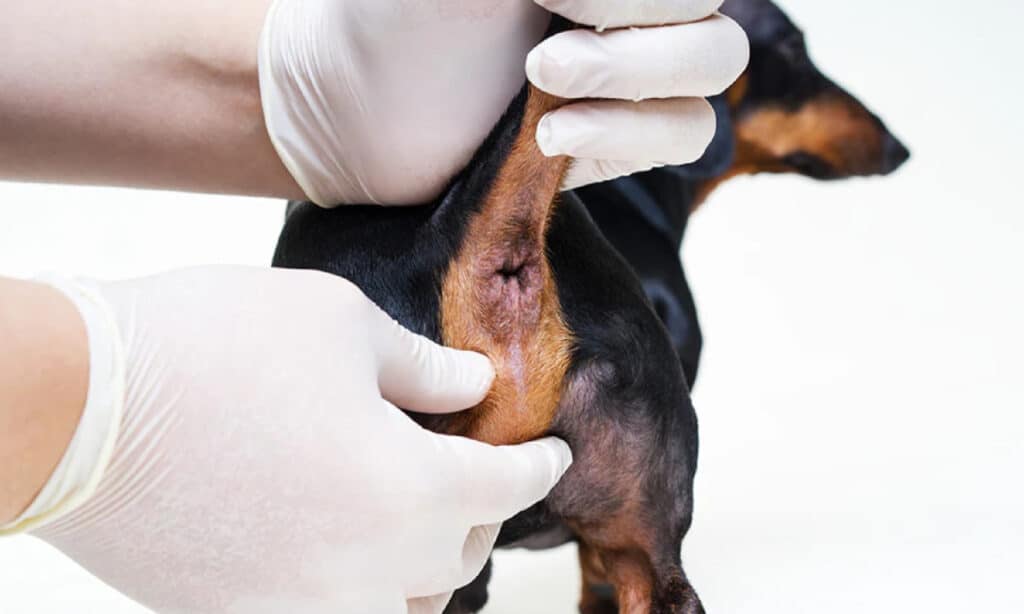
Skin Infections
Skin irritations and inflammations caused by bacterial or fungal infections are common factors for a sore dog bum. The reason behind such infections can be numerous, ranging from bites to allergies and poor hygiene. Often the tell-tale signs of these infections are redness, swelling, itching, or scabbing around the anal area.
If left untreated, skin infections can cause considerable discomfort to your furry friend. Your vet will likely suggest administering antibiotics or ointments in case of a bacterial infection or an anti-fungal cream for a fungal one. While improving their hygiene routine through regular bathing and cleaning routines can also help prevent such ailments.
It’s worth noting that constant/increased licking of the anal region may only worsen any existing condition leading to further complications; it is always advised to consult with professionals immediately.
Unique details about skin infections include their capacity to crawl up through tangled fur, causing irritations and inflammation over other body parts. That said, blood infections from severe hygienic neglect could create more significant health issues affecting liver function etc.
Skin Infections have been known to cause major discomfort in domesticated animals throughout history and reign as some of the most common ailments requiring swift attention when detected timely.

Allergies
Allergic reactions are one of the most common causes of a sore dog bum and can be triggered by several factors. The symptoms may vary from mild to severe, depending on the allergen that has caused the reaction. Here are some points to consider when detecting and treating allergic reactions in dogs.
- Dogs can develop allergies to many things, including food, airborne particles, parasites, chemicals, and medications.
- The most common symptom of an allergic reaction is excessive itching or scratching around the anus area.
- Other signs may include redness or irritation around the anus area, discharge or bleeding from the anal region, and change in bowel movements.
- Diagnosing an allergy can be complicated. The vet may perform various tests such as skin prick tests or blood tests to identify the exact allergen responsible for your dog’s condition.
- Treatment involves avoidance of allergens where possible and medication management. Antihistamines or corticosteroids may be prescribed by your vet to control symptoms and relieve itchiness or inflammation.
- If your dog is suffering from chronic allergies that impact their quality of life significantly, immunotherapy might be recommended by your veterinarian.
It is crucial to keep track of any changes in your dog’s behavior and health regularly. If you notice any signs of discomfort related to allergic reactions, please consult with a licensed veterinarian.
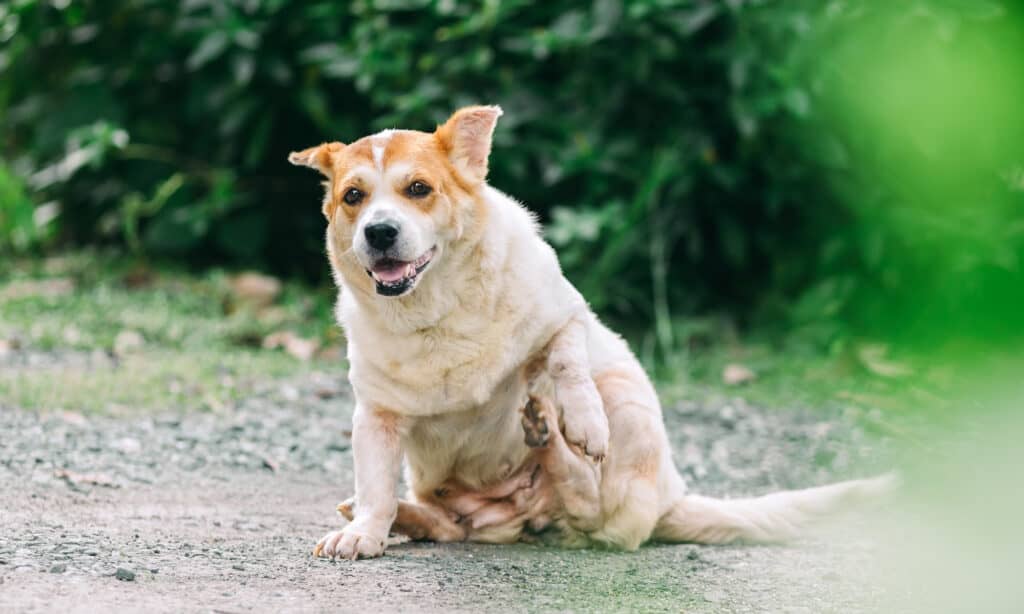
Injury
When it comes to the sore dog bum, inflammation is a common problem that is medically referred to as ‘dermatitis’. This inflammation can be caused by various factors, including allergies, skin infections or irritation, lack of hygiene, and parasites. These conditions can occur around the anus or on the skin between your dog’s rear legs. The discomfort can drive a dog crazy, leading to excessive licking, chewing, and scratching.
In some instances, injuries around the rear end area may also contribute to inflammation. Certain breeds with short tails like Cocker Spaniels are more prone to injury due to their anatomy. Additionally, small puppies with soft bones may injure themselves more easily.
A pro tip for pet owners is that maintaining good hygiene and regular check-ups with the vet can significantly reduce your dog’s chances of developing inflammation around the rear end.

Selecting the Right Cream for Your Dog’s Sore Bum
To select the right cream for your dog’s sore bum, understanding the ingredients, avoiding harmful ones, consulting with your vet, and deciding between prescription and over-the-counter creams are crucial. In this section, you’ll learn how to choose the best cream for your furry friend’s relief.
Understanding the Ingredients
To fully comprehend the constituents of the cream that will aid your dog’s sore bum, you need to delve into the ingredients list.
The following table showcases some of the critical elements that you should look out for:
| Ingredient | Purpose |
|---|---|
| Zinc Oxide | Aids in healing and soothing irritation and inflammation |
| Vitamin E | Acts as an antioxidant that helps repair damaged skin cells |
| Aloe Vera | Provides a cooling effect and soothes the affected area |
| Chamomile Oil | Relieves pain and aids in reducing inflammation |
In addition to these ingredients, check the label for any possible allergens or irritants that your dog may be allergic to.
It is imperative to use a trusted cream recommended by your vet. So, consider discussing with them or seeking their advice on what cream would best suit your furry friend.
My friend’s dog recently had a sore bum, but they weren’t sure what cream to use. After discovering that their neighbor has experience with treating such ailments, they sought her counsel. Following her recommendation of using a particular cream, his dog’s bum healed up in no time!

Avoiding Harmful Ingredients
To ensure the safety and health of your furry companion, it is necessary to avoid harmful ingredients when selecting a cream for their sore bum. Here are some points to keep in mind:
- Avoid creams that contain corticosteroids as they can have several side effects such as increased thirst, appetite, and urination. In extreme cases, it may even lead to Cushing’s syndrome.
- Steer clear of creams that have artificial fragrances as they can cause skin irritation and allergic reactions.
- Avoid products with parabens as they are known to disrupt endocrine systems and potentially cause cancer.
It is essential to understand the ingredients before buying any product for your dog’s sore bum. Make sure to research and read the label carefully before making a purchase.
When selecting a cream for your dog’s sore bum, remember that natural products tend to be safer than synthetic ones. Additionally, if your dog has any existing medical conditions or allergies, consult a veterinarian before using any cream.
In ancient times, people used natural herbs and oils on their dogs’ skin wounds. For instance, lavender was used for its anti-inflammatory properties, while calendula was believed to promote tissue healing. Today there are many such natural remedies available in pharmacies and pet stores.

Consulting with Your Vet
When choosing the right cream for your dog’s sore bum, seeking advice from a qualified veterinarian is essential. A consultation with your trusted vet can provide you with insightful and accurate information on selected creams’ benefits and side effects. Your vet may run tests to identify the specific condition causing the soreness, which will help in selecting the best cream to relieve your dog’s discomfort.
It is crucial to consider that creams are not one-size-fits-all; factors such as age, breed, weight, and medical history of the dog need to be considered when selecting a cream. Your vet will take all these factors into account before suggesting or recommending a cream suitable for your pet.
When consulting with your vet, make sure to ask questions that can help you understand how frequently you should apply the chosen cream. Also, ask about any possible allergic reactions or negative side effects associated with it. Overall, your vet can guide you through selecting the most effective treatment plan for helping improve your dog’s health.
In my experience as an animal advocate, I have seen many dogs suffering from sore bums due to a lack of proper care and treatment. A friend once borrowed her neighbor’s puppy who had sores on his bum; after visiting her vet and getting medication prescribed early enough promptly, the puppy made an amazing recovery. Seeking veterinary care for our pets cannot be overemphasized; it saves them from unnecessary agony and helps maintain their overall well-being.
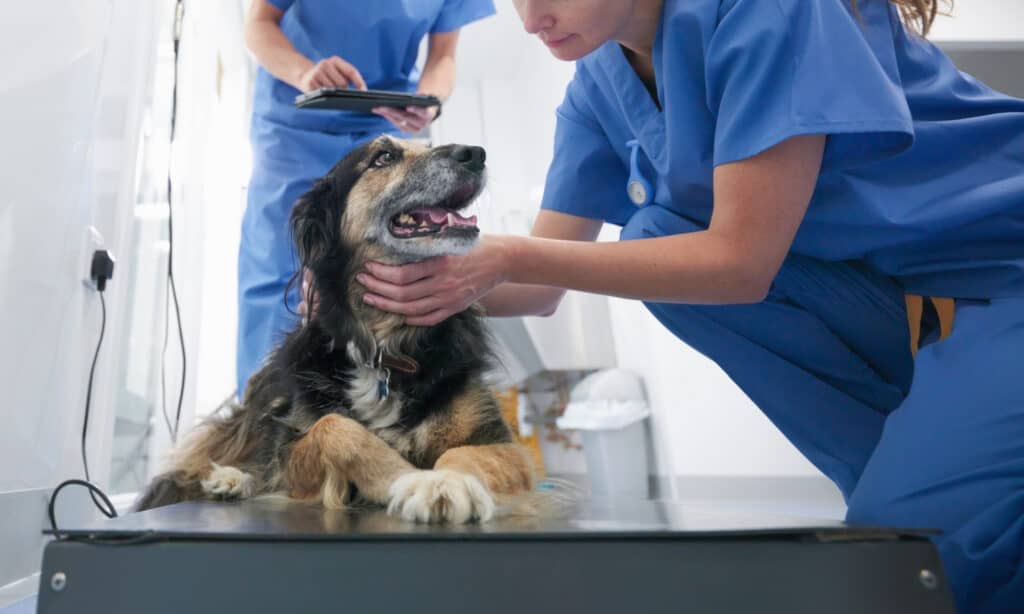
Prescription vs. Over-the-Counter Creams
When deciding which cream to use for your dog’s sore bum, it is essential to understand the differences between Prescription and Over-the-Counter creams. These two types of creams have varying compositions, effectiveness, and usage.
- Prescription creams are usually prescribed by a veterinarian after an examination. They are formulated with stronger ingredients than over-the-counter creams and are designed to treat specific conditions such as bacterial infections or skin irritations.
- Over-the-Counter creams are available in most pet stores and do not require a prescription. They contain milder ingredients that help soothe minor skin irritations, cuts, and rashes. However, they may not be effective against severe conditions.
- It is vital to follow your vet’s instructions when using prescription creams and observe your dog’s reactions closely. If you notice any adverse effects or worsening symptoms during the application, discontinue use immediately.
When choosing between prescription vs. over-the-counter creams, other factors may come into play depending on your dog’s medical history, age, breed size, and other allergies they might have. Consulting a trusted Veterinarian can provide additional information for the right cream.
A colleague shared that her dog had persistent redness despite applying an over-the-counter cream. After visiting the Vet’s office, they recommended switching to a prescription cream containing antibacterial agents and anti-inflammatory properties that worked wonders in just a few days’ time – making their pet supply run smoother without worrying about their fur baby getting irritated down there ever again!
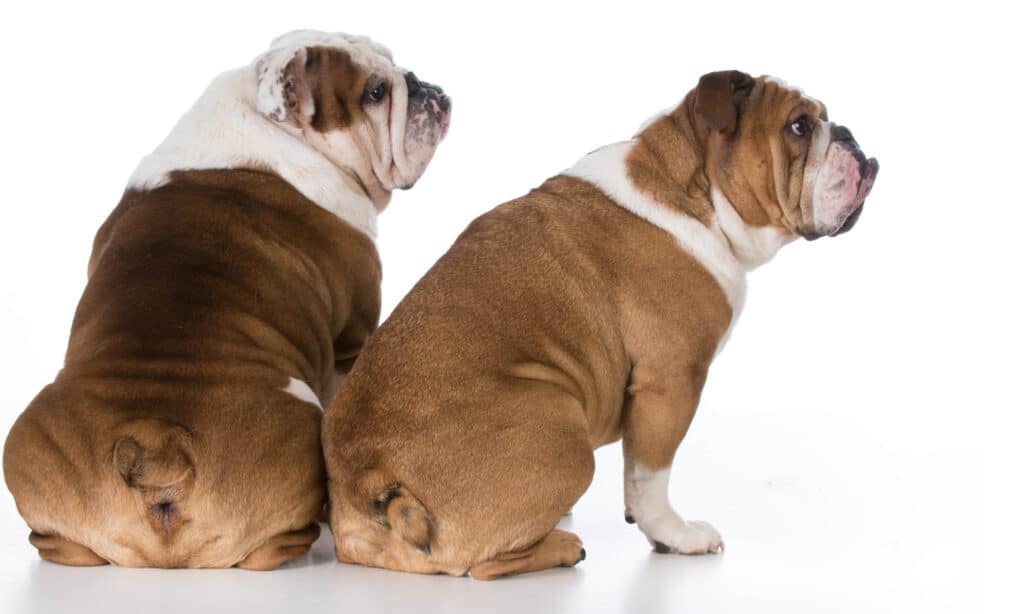
Best Creams for Dog’s Sore Bum
If you’re a dog owner, you know that a sore bum can be a common issue for our furry friends. Luckily, there are many creams available that can help alleviate discomfort and promote healing. But with so many options on the market, it can be hard to know which ones are the best. In this section, we’ll take a look at some of the top creams for a dog’s sore bum, including their ingredients, benefits, and any potential drawbacks, so you can make an informed decision for your beloved pet.
Neosporin Original Antibiotic Ointment
This antibacterial ointment, commonly known by the brand name, Neosporin, is an effective remedy for soothing dogs’ irritated skin. Its blend of neomycin, polymyxin B and bacitracin combat bacterial infections and accelerate wound healing. Neosporin can be applied topically on the affected area several times a day until desired results are achieved. Avoid using it near the eyes and keep it out of your dog’s reach.
A key point to note about Neosporin is that it should only be used topically and never ingested. Ingestion of this medication may cause serious side effects such as vomiting, diarrhea or even life-threatening allergic reactions. Also, do not use Neosporin on dogs that have developed an allergy to it in the past.
Pro Tip: Always consult with your vet before taking any medical measures or administering medication to your pet. They will be able to diagnose and prescribe treatments accordingly for timely recovery from itching and inflamed bum issues.
| Pros | Cons |
|---|---|
| Well-known and trusted brand of antibacterial ointment | Some dogs may be allergic to the active ingredients, causing adverse reactions |
| Contains three active ingredients that promote healing | Ingestion of Neosporin by the dog can cause digestive issues |
| Widely available in drugstores and online | Overuse of Neosporin can lead to the development of antibiotic-resistant bacteria |
| Relatively inexpensive compared to veterinary products | May not be effective for all types of wounds or infections |
| Safe for use on dogs when used as directed | May not be sufficient for more severe or deep wounds, requiring veterinary care |
Burt’s Bees Paw & Nose Lotion
- Made with all-natural ingredients
- Contains no harmful chemicals or additives
- Moisturizes and softens rough skin
- Can be used daily to prevent further damage
- Comes in an easy-to-use dispenser bottle
- Affordable compared to other options in the market
What sets Burt’s Bees Paw & Nose Lotion apart is its effectiveness in treating sore bums caused by excessive licking, scratching, or anal gland issues. It gently moisturizes the sensitive area, reduces inflammation, and provides much-needed relief.
One true fact is that Burt’s Bees products have been trusted by pet owners for over 30 years due to their gentle and natural approach to pet care.
If your dog’s bum is in trouble, try Vetericyn Plus – because that’s a lot easier than explaining to your vet how it happened.
| Pros | Cons |
|---|---|
| Made with natural ingredients | Some dogs may be allergic to ingredients |
| Free from potentially harmful chemicals | May not be effective for severe or persistent issues |
| Well-known and trusted brand | Scent may be too strong for some dogs |
| Easy to apply and absorbs quickly | More expensive compared to some other paw and nose balms |
| Positive reviews from dog owners who have used it | May not be convenient to apply to resistant dogs |
Vetericyn Plus
For a dog’s irritated skin, Vetericyn Plus is an effective and versatile solution. Its unique formula promotes rapid healing by assisting in the natural wound-cleansing process, reducing inflammation, and promoting cell proliferation. This antiseptic and antimicrobial spray can be utilized on a variety of skin ailments, from cuts to rashes and even hotspots.
Moreover, Vetericyn Plus can be used safely around sensitive areas like the eyes and ears without causing any discomfort or irritation. It is a non-toxic and non-irritating product that does not contain harsh chemicals or antibiotics, making it ideal for dogs with sensitive skin or allergies.
When using Vetericyn Plus on a sore bum, it is recommended to clean the affected area thoroughly before applying the spray. For best results, follow up with a protective barrier cream like Bag Balm or Desitin to help soothe any discomfort and prevent further irritation while the skin heals.
Vetericyn Plus is an excellent product when dealing with a dog’s sore bum as it helps accelerate wound healing, reduces inflammation, and is safe to use around sensitive areas. Pairing it with a protective barrier cream will provide your pet additional comfort through the healing process.
| Pros | Cons |
|---|---|
| Vetericyn Plus is a highly effective and versatile antimicrobial solution for the treatment of wounds | The solution may cause mild irritation or stinging sensation in some dogs, especially those with open wounds |
| The solution is safe and non-toxic, with no steroids, antibiotics, or alcohol | The solution may not be as effective for severe or deep wounds |
| Vetericyn Plus is easy to apply and does not require any rinsing or wiping | The solution may have a relatively short shelf life compared to other wound care products |
| The solution is versatile and can be used on a variety of wounds and skin issues | The solution may be more expensive compared to some other wound care products |
| Vetericyn Plus has received many positive reviews from pet owners who have seen positive results | The solution may not be suitable for all types of wounds or skin issues |
Applying Creams to Your Dog’s Sore Bum
To apply creams to your dog’s sore bum with confidence, you need to be well-prepared. This requires assessing and cleaning the affected area to ensure it’s safe for application. Next, it’s vital to apply the cream correctly, following recommended guidelines. Finally, for deeper wounds, you may need additional treatment to promote healing.
Preparing Your Dog
Preparing your dog before applying any creams to their sore bum area is essential. Here’s how you can get started.
- Start by ensuring that your dog is relaxed and comfortable in a clean and quiet environment.
- Prepare the cream according to directions and make sure it is at room temperature, not too hot or too cold.
- Gently pet and soothe your dog while inspecting the affected area before applying the cream.
- Use gloves or wash your hands thoroughly to avoid contamination before beginning.
Here are some additional details: gently part fur away from the afflicted skin spot while affording full daylight to examine it appropriately and use an E-collar until healing (if required) is complete.
To help reduce inflammation, you can suggest changing their diet plan by focusing on foods with anti-inflammatory properties such as salmon, flaxseeds, and sweet potatoes alongside medications recommended by your veterinarian.

Applying the Cream
For managing your furry friend’s sore bum, applying balm or lotion is necessary. Follow these steps to ensure the proper application of the cream:
- Clean your dog’s bum area with warm water and pat dry.
- Apply a small quantity of the cream directly on the affected part.
- Rub the cream gently and uniformly around the area with circular motions.
- Let the cream settle and dry for a few minutes before proceeding to any other activities.
- Repeat this process twice daily till complete healing.
- Dispose of all leftovers carefully and ensure they are out of reach from your dog.
It’s essential to read the instructions mentioned on the packaging before proceeding to apply any type of medicated cream or lotion on your dog’s skin.
While applying any creams, avoid rubbing too rigorously, as it may cause pain or more complications.
One time, while taking care of my friend’s bulldog, I observed that he had been itching his bottom continuously yet avoiding sitting on hard surfaces. They had not noticed signs of irritation until then, so I recommended a medicated cream intended for treating cuts and other such skin conditions suitable for dogs’ use. After three days of continuous dosing, he showed significant improvements in terms of both physical condition and mood!
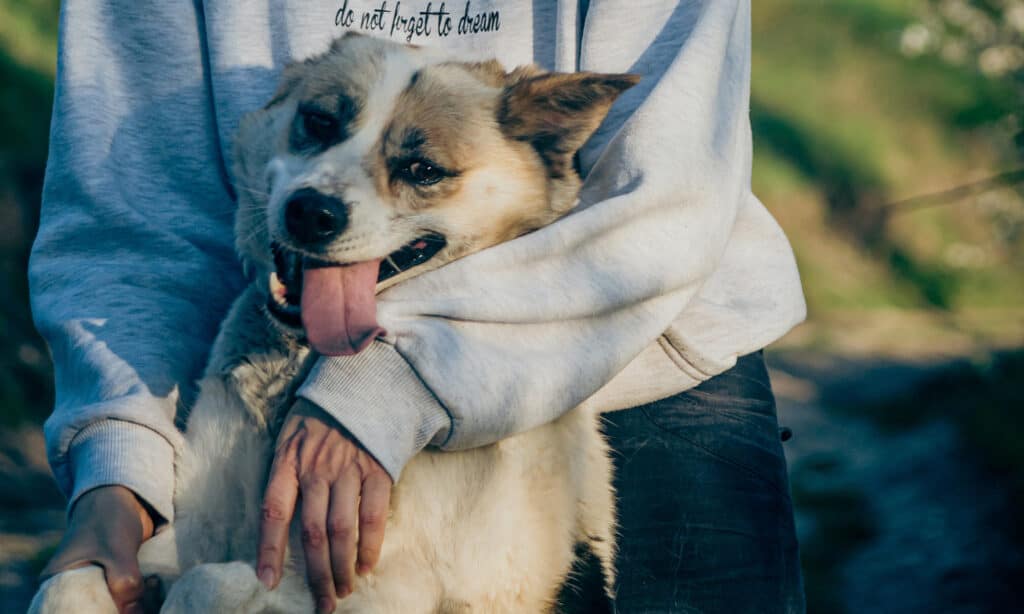
Treating Deep Wounds
When healing extensive wounds on your dog, you must carefully handle the affected area while using the most effective treatment. One of the recommended ways involves the use of antibiotics and antiseptics for controlled healing and preventing any further infections. The ointments contain anti-inflammatory and pain-relieving properties to keep your dog calm during the recovery period.
To effectively treat deep wounds on a dog, keep the wound clean by washing with clean water or an antiseptic solution regularly. You can wrap a bandage around the affected area after applying an antibiotic cream. Keep an eye on your dog for any signs of discomfort or allergic reactions. For better results and quick recovery, consider taking your fur baby to a vet’s clinic for examination.
It is essential to avoid exposing dogs to potential source points that may lead to injuries such as car accidents or aggressive encounters with other animals. The proper care ensures that your pet leads a healthy life free from any suffering due to untreated wounds.

Caring for Your Dog’s Sore Bum at Home
To care for your dog’s sore bum at home with expert advice, you need to focus on several things. These include keeping the area clean, preventing licking, monitoring for improvement, and seeking veterinary attention if the condition worsens. By following these sub-sections, you can help improve your dog’s discomfort and promote faster healing.
Keeping the Area Clean
Maintaining Hygiene of Your Canine’s Irritated Bottom
It is vital to keep the affected area clean when your furry friend has a sore bum. Dust, dirt and fecal remnants may exacerbate the irritation. Moreover, uncleanliness allows bacteria to breed, leading to infection.
- To clean the area, use lukewarm water or hypoallergenic wet wipes.
- Pat dry the skin with a soft towel as rubbing can cause more irritation.
- Avoid using perfumed soaps or shampoos on your dog’s bottom.
In addition to these measures, you must consider cleaning after every bowel movement. This method avoids depositing additional particles in the afflicted region and reduces further inflammation.
Pet owners who have ignored their dog’s problem must note that maintaining hygiene is imperative before applying any treatment.
Several factors can cause irritation and soreness in dogs’ bottoms. A specific type of canine will usually be more prone to this issue than others due to their biology, while diet and unkempt hygiene are also common contributors. Veterinarians report similar cases frequently; thus, it is best if dog-owners proactively manage their pet’s health by observing changes in behavior and cleanliness regularly.

Preventing Licking
Preventing Your Dog from Aggravating Their Sore Bum
Dogs always tend to lick or bite their sores or sensitive spots. To prevent your pup from aggravating their sore bum, follow these tips:
- Apply a vet-approved cream or spray that is safe for dogs on the sore area.
- Use an Elizabethan collar to prevent access to the sore area.
- Cover the sore with an appropriate dressing that prevents further irritation.
- Clean the affected area regularly with a salt solution prescribed by your vet and dry it gently with a clean towel.
If your dog continues to lick or chew the sore spot, consult your vet immediately. Avoid using any human ointments or creams as they may contain ingredients harmful to dogs.
To avoid further complications, it’s crucial to monitor your dog’s behavior and keep track of any changes in their condition. Keep them relaxed and ensure they’re not stressed or agitated in any way.
Keep in mind that caring for your dog’s sore bum could improve its overall well-being and help prevent infections.
Don’t delay taking care of your furry friend’s wound as it may lead to more severe conditions over time. Always prioritize their health and happiness above all else. Keeping an eye on your dog’s bum is not glamorous, but it’s necessary for a happy hiney.

Monitoring for Improvement
To ensure your furry friend’s recovery, it is essential to keep track of their progress continuously. Observing any changes in their behavior or condition will help you and your veterinarian resolve the issue quickly.
Record any treatments, diets, or medications given and the results from each action taken. Observe for improvements or worsening symptoms that require immediate veterinary attention.
Prevent further irritation by avoiding excessive runs or jumping around as this could aggravate the affected area and worsen the condition. When taking them out on walks, use a leash to prevent excess movement.
Also, monitor for side effects caused by medications prescribed by your veterinarian. If your dog shows symptoms like vomiting or diarrhea after administering medication contact your veterinarian immediately.
Overall, keeping a close eye on your dog’s progress is significant in their recovery process. Remember to take precautions to avoid further distress and record all observations for consideration during future emergency visits.
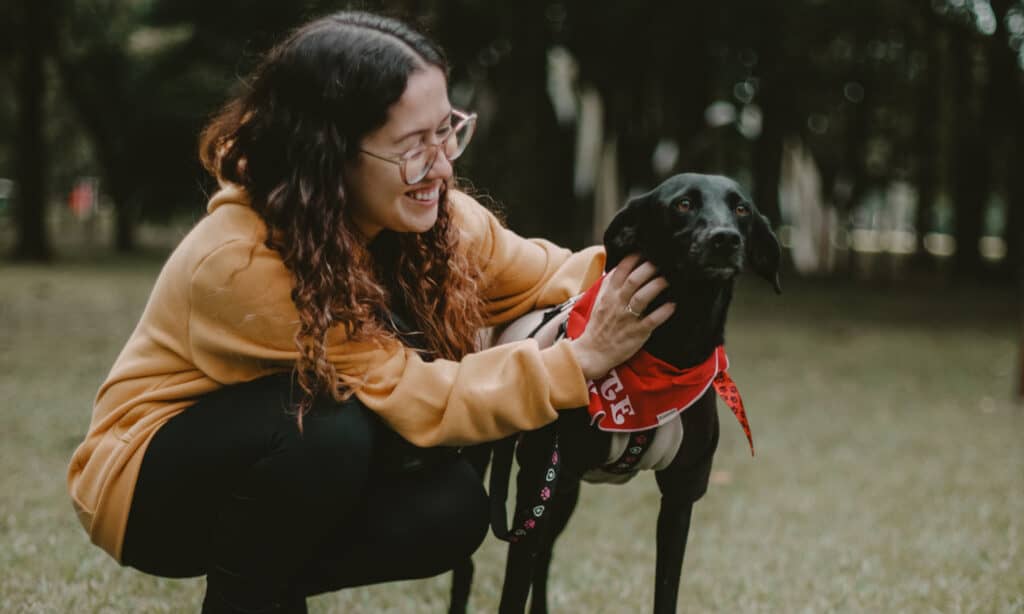
Seeking Veterinary Attention if the Condition Worsens
As the condition of your dog’s sore bum requires immediate attention, if its status worsens, visiting a veterinarian becomes imperative. It is advisable to seek an expert’s advice if your furry friend expresses pain or shows difficulty sitting. Providing timely medical care ensures quick recovery and prevents further complications.
Delaying veterinary assistance may lead to secondary infections, extended healing time, and even scarring. In severe cases, long-term damage can affect your pet’s general health and mobility. A veterinarian will evaluate the underlying cause and recommend suitable treatment regimens accordingly.
Remember to take preventive measures in case of a recurrently inflamed sore bum on your dog. Maintaining good hygiene practices like frequent cleaning, using mild shampoos, and ensuring a healthy diet can effectively prevent such instances.
Pro Tip: Monitor your pet’s behavior closely after administering home remedies; do not rely solely on them and seek professional medical care if required.

Conclusion
To alleviate your furry friend’s sore bum, consult your veterinarian first. They may prescribe a topical cream to alleviate itching/discomfort and encourage healing. Using hydrocortisone or Neosporin on your dog’s sore bum can also help. These creams are effective in calming the itching and provide an environment for healing. Make sure to apply a thin layer of cream on the affected area 2-3 times a day until improvement is observed. Remember to implement any other suggestions from your veterinarian.
It is important to note that not all creams are suitable for dogs and using some human creams on them may prove harmful. Therefore, only use veterinarian-approved topical products for your pet’s safety. In addition, proper hygiene practices such as wiping them after defecation, using mild baby wipes instead of harsh ones, and bathing regularly can help prevent future occurrences.
Keeping up with preventative measures is key in ensuring your pet’s overall health and happiness.
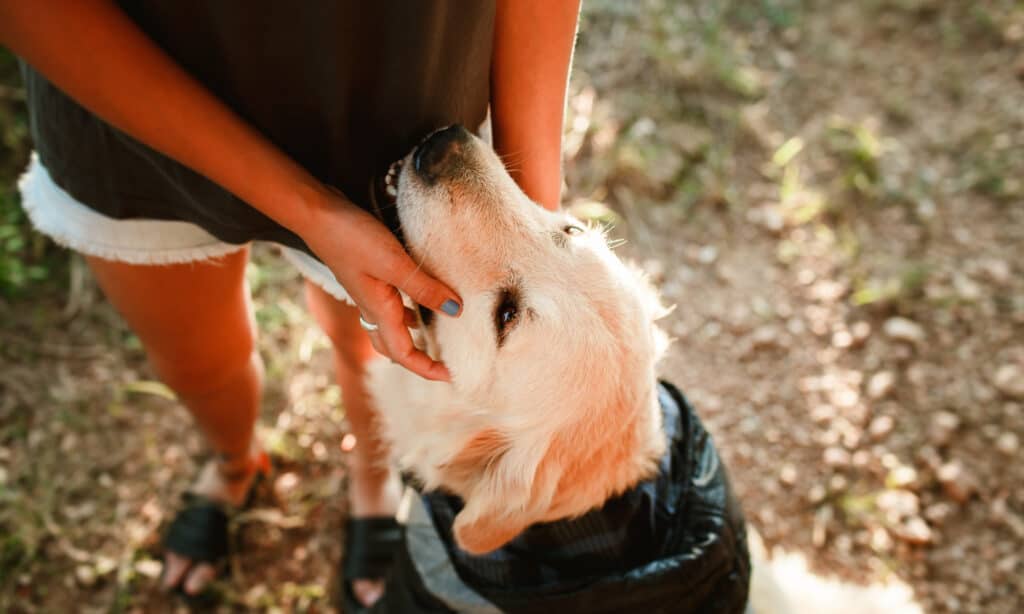
Frequently Asked Questions
Q: What cream can I put on my dog’s sore bum?
You can use a variety of creams, such as anti-inflammatory creams, pain-relieving creams, and moisturizing creams. However, it is best to consult with a veterinarian to determine the best cream for your dog’s specific condition.
Q: Can I use human creams on my dog?
It is not recommended to use human creams on dogs, as they may contain ingredients that are toxic or harmful to dogs. Always use creams specifically formulated for dogs or as recommended by a veterinarian.
Q: How often should I apply the cream?
The frequency of application depends on the severity of the condition and the type of cream being used. Follow the instructions on the cream or as recommended by a veterinarian.
Q: Will the cream stop my dog from licking the sore?
Some creams may have a bitter taste or smell to deter dogs from licking the sore. However, it is important to discourage excessive licking and protect the sore with a cone or wrap to allow it to heal properly.
Q: Are there any natural remedies for a sore bum on a dog?
There are some natural remedies that may help alleviate a sore bum, such as coconut oil, aloe vera, and chamomile tea. However, it is important to consult with a veterinarian before trying any natural remedies.
Q: How can I prevent my dog from getting a sore bum?
Maintaining good hygiene, providing a clean and comfortable living environment, and taking your dog for regular check-ups can help prevent a sore bum. Also, make sure your dog has a healthy diet and gets plenty of exercise.
~Lindsie


